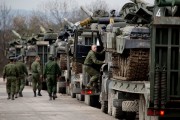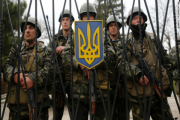As World Aids Day dawns in Russia, we’ve worked with EVA’s Natalie Flath to try to get a grip on how serious the Aids problem really is.
While in most of the world, HIV infection rates are falling, sadly, in Russia (along with Eastern Europe and Central Asia) new HIV infections since 2006 have increased by 13%, according to the UNAIDS World Aids Day Report. Mortality rates are also increasing, and this year, approximately as many people are expected to die from Aids in Russia as from car-crashes, a depressing statistic if ever there was one.
The theme for World Aids Day this year is “Shared Responsibility: Strengthening Results for an Aids-Free Generation.”
It is vital that Russian people are able to access the treatment that they need. Even though the government claims to treat 100% of patients, strategic monitoring efforts by community-based organizations have exposed that the number of treatments purchased by the government would only cover 80% of patients. The most troubling aspect to the government’s claim regarding coverage is that the WHO estimates the number of actual cases are well above the registered cases. The coverage gap is dramatically underestimated.
HIV treatment is not readily available as a result of flaws in the procurement and supply chain procedures. Patients either go without treatment or are forced to change their regimens. Problems in the supply chain process is due to lack of funding and high drug prices. As recently November 7th, an Aids Center in the region of Khakassi met to discuss the HIV drug shortage where patients were unable to access life-saving medication.
Russia is shifting from a centralised to a localised procurement system. As a result, each region is responsible for meeting their own individual demands. Regional centers are underprepared and underfunded. In the region of Khakassi, despite each patient requiring treatment costing 30 million roubles [$1m], only 12 million [$400,000] were budgeted. Regional centers are left to decide whether to purchase fewer drugs or different regimens. As a result, patients do not have access to treatment or they are forced to change their treatment regimens, which can change the course of HIV infection and have detrimental effects on health.
Sergey Golovin, a representative of the “Coalition for Treatment Preparedness” in Russia explains that “The problems of the decentralization of procuring antiretroviral drugs to treat HIV has affected all regions of Russia, not only Khakassia. Khakassi was particularly blown up because of the heavy financial deficit and the active participation of patients reporting their circumstance.” The coalition emphasizes the importance of working with drug suppliers to dramatically reduce prices so interruption in treatment access doesn’t continue.
Visit the EVA network’s site for more information on how you can help.







